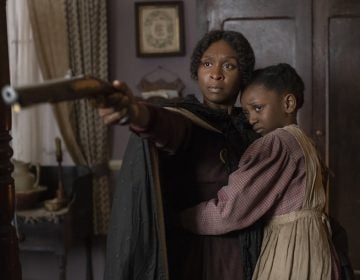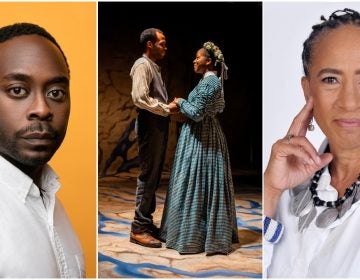Why would some Black audiences boycott the new Harriet Tubman movie?
Across Black Twitter and other social media platforms, a small but vocal segment of Black people are imploring other African Americans not to support the film. Why?

(Focus Features/Youtube)
In a Black community dealing with the shooting deaths of numerous children in recent months, another story is vying for top billing — the proposed boycott of the Civil War-era biopic, “Harriet.”
It seems to be part of a disturbing pattern of Black folks telling each other not to support Black films. And not just any Black films — Black films that tell the stories of African Americans who fought back against slavery.
Across Black Twitter and other social media platforms, a small but vocal segment of Black people are imploring other African Americans not to support the film. Based on the life story of Harriet Tubman, the film contains various fictional elements, but in my view, it captures the spirit of the woman who led so many enslaved people to freedom that she earned the biblical moniker, Moses.
However, capturing Tubman’s spirit isn’t good enough for some in the Black community. And that’s ironic because the movie has a Black female producer, Black female writer, Black female director, and an overwhelmingly Black cast. Yet there are Black folks out here saying the film’s not Black enough.
Some in the anti-Harriet camp say they’re angry because the star of the film, Cynthia Erivo, is a British actress of Nigerian descent rather than an American descendant of enslaved people. Others are angry because Erivo mocked a so-called “ghetto accent” on Twitter six years ago. Still, others are angry because the movie included a Black tracker of enslaved people named Bigger Long — a fictional character who was a representation of real-life African Americans who made their living by assisting in the subjugation of other African Americans.
Given that the push against the film lives largely online, I have to wonder if the proposed boycott against “Harriet,” like the Russian-backed push to convince Black people not to vote in 2016, originates from outside the Black community. After watching African Americans embrace the anti-election propaganda generated by Russian trolls on fake Facebook accounts like Blacktivist, I know my community is susceptible to such manipulation.
And when it comes to movies about real-life Black heroes, reports of manipulation are not new. In 1992, for instance, Spike Lee complained that cashiers in movie theaters were switching out tickets for his landmark biopic, “Malcolm X,” for white films like “Home Alone 2: Lost in New York.”
Therein lies the irony. The same Black folks who complained about the film industry undercounting sales for Black films almost never target white films with boycotts.
That bothers me.
I’m annoyed that some in the Black community will boycott Harriet while supporting “Star Wars” movies with only two Black people in the universe. I’m irritated that some Black folks would boycott Harriet, but continue to watch Seinfeld after one of its stars, Michael Richards, told a Black heckler at a comedy show that “Fifty years ago we’d have you upside down with a f—— fork up your ass.” I’m flummoxed that Black folks still support Clint Eastwood movies even after Eastwood belittled Barack Obama by pretending to talk down to the first Black president in a chair.
I don’t remember seeing any significant portion of the Black community boycott one white movie in my lifetime. But the Black films? We boycott all day. Some African Americans boycotted “The Birth of A Nation” because the star of the film, Nate Parker, was tried and acquitted of rape charges 20 years ago. Some in the Black community boycotted BET’s butt shaking videos because they were deemed indecent, but ran to see the S&M film, “Fifty Shades of Gray.”
Still, the content isn’t the only reason some in the Black community are boycotting “Harriet.” Some Black people are boycotting because Comcast is behind the film, and Comcast is being sued by Byron Allen for racism — a charge Comcast denies.
But here’s the thing. If you were really boycotting Comcast, would you just boycott one film, or would you call and have your cable disconnected?
If you were boycotting Comcast, wouldn’t you refuse to watch anything by Universal since Comcast owns that studio?
It just doesn’t make sense to me, unless of course, there are other forces at work — racist forces that have used online messaging to convince some in the Black community to fight against films depicting real-life Black heroes.
As for me? I have a simple rule of thumb. If Black folks are the creators, if Black folks are getting paid, if the message about us is positive, I’m willing to support the film.
Black folks do that much for everybody else. We have learned to do it for ourselves, too.
—
Join Solomon Jones for #ManUpPHL, an anti-gun violence initiative bringing Black men together to stop the shooting. Nov. 18, 6pm at Community College of Philadelphia, Winnet Student Life Building, 502 N. 17th St., Philadelphia. Click here to learn more.
WHYY is your source for fact-based, in-depth journalism and information. As a nonprofit organization, we rely on financial support from readers like you. Please give today.





